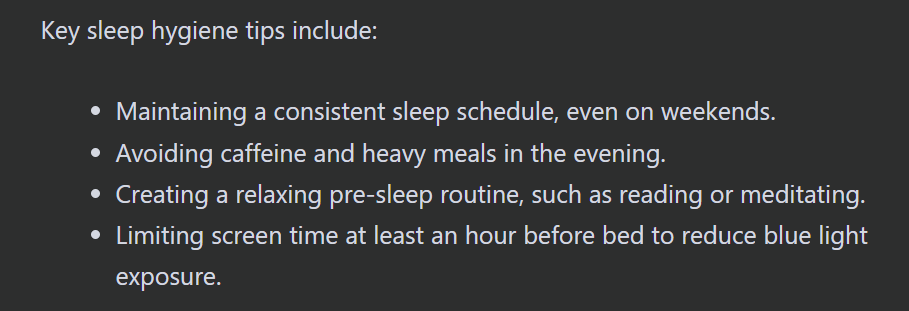The DU Lounge
Related: Culture Forums, Support ForumsRestless Nights: Examining the Growing Sleep Crisis
https://livenewschat.eu/restless-nights-examining-the-growing-sleep-crisis/
In a world that never seems to sleep, millions of people are struggling to get the rest they need. From the rise of remote work to the constant glow of screens, modern life has disrupted our natural sleep cycles, leaving many searching for solutions. As sleep disorders become a growing public health concern, experts are turning to natural remedies and better sleep hygiene practices to combat the crisis. Recent studies suggest that nearly 35% of adults in the U.S. report getting less than the recommended seven hours of sleep per night. This alarming trend has sparked renewed interest in natural sleep aids like ashwagandha, lavender, and chamomile, as well as lifestyle changes that promote healthier sleep habits.
Natural Sleep Aids: A Growing Trend
The use of natural remedies for sleep is nothing new, but their popularity has surged in recent years as people seek alternatives to prescription medications. Among the most talked-about options is ashwagandha, an ancient herb known for its stress-reducing properties. By lowering cortisol levels, ashwagandha helps the body relax, making it easier to fall asleep. Another popular choice is lavender, which has been shown to improve sleep quality through its calming aroma. Lavender essential oils and sprays are now staples in many households, offering a simple and affordable way to enhance bedtime routines. Chamomile, often consumed as a tea, remains a classic remedy for those looking to unwind before bed. Its mild sedative effects make it a favorite for people of all ages. Meanwhile, valerian root, another herbal option, has gained attention for its ability to improve sleep duration and reduce the time it takes to fall asleep.
Cannabis and Sleep: A Controversial Solution
One of the more controversial trends in natural sleep aids is the use of cannabis. In states where it is legal, certain strains of cannabis are being explored for their sedative properties. Advocates argue that cannabis can be a game-changer for those with chronic insomnia, but critics warn of potential risks, including dependency and inconsistent effects. For those interested in exploring this option, the availability of cannabis seeds and the ability to grow cannabis at home legally in many states and jurisdictions has become increasingly accessible and normalized. However, experts caution that individuals should consult with healthcare professionals and adhere to local laws before incorporating cannabis into their sleep routine.
The Role of Sleep Hygiene
While natural remedies can be helpful, experts agree that good sleep hygiene is the foundation of healthy rest. Dr. Emily Carter, a sleep specialist at the National Sleep Institute, emphasizes the importance of creating a consistent bedtime routine. “Your body thrives on routine,” says Dr. Carter. “Going to bed and waking up at the same time every day helps regulate your internal clock. Small changes, like reducing screen time before bed and keeping your bedroom cool and dark, can make a big difference.”

snip
SheltieLover
(66,761 posts)PoindexterOglethorpe
(27,765 posts)that getting enough sleep is the single most important thing a person can do, other than not smoking, which is the biggest killer of all. I also do my best to eat decent, healthy food, just not too much.
Most of my working life I did some kind of shift work. I spent ten years at DCA, Washington National Airport, and I was often scheduled "turn-around", meaning I was scheduled to get off at 10pm one day, had to be back at 6am the next. If flights ran late for some reason, I got off later, still had to be back at 6. I was in my early 20s, and could do it, but I was real aware of how exhausted I often was the next day.
I honestly think that among the reasons I'm in such amazingly good health is that I have mostly gotten enough sleep, I've never smoked, I tend to sit or stand straight, not slouch like so many do, I drink plenty of water, and eat reasonably well. Yeah, I should consume more fruit and veggies, but I never do fast food, and try to minimize consumption of highly processed foods. Little things really do add up.
OAITW r.2.0
(30,041 posts)Works for me. I believe in a good nights sleep. That means turning the processing part of the brain off.
Dem2theMax
(10,654 posts)Had to figure it out for myself, because my doctor was at a loss. Rarely had wine, but every time I did, I would stop breathing while sleeping. Sadly, this means no more wine at all in my life. ![]()
OAITW r.2.0
(30,041 posts)But totally understandable.
Skittles
(163,560 posts)Aristus
(69,710 posts)I’m still astonished at the number of people who not only still smoke, but smoke right before bed. You’ve just pumped yourself full of a stimulant, and can’t figure out why you can’t sleep?
Half of my cases of insomnia can be solved with simple lifestyle choices. Don’t fall asleep to the TV, or your iPhone, or whatever. No heavy meals right before bed. If you get up to an alarm, don’t keep hitting the snooze; set the alarm for when you intend to get up, etc.
mopinko
(72,297 posts)i usually eat kinda early, so a small snack helps.
i get a tablet at the dispensary that is cbn:cbd:thc. it does seem to help.